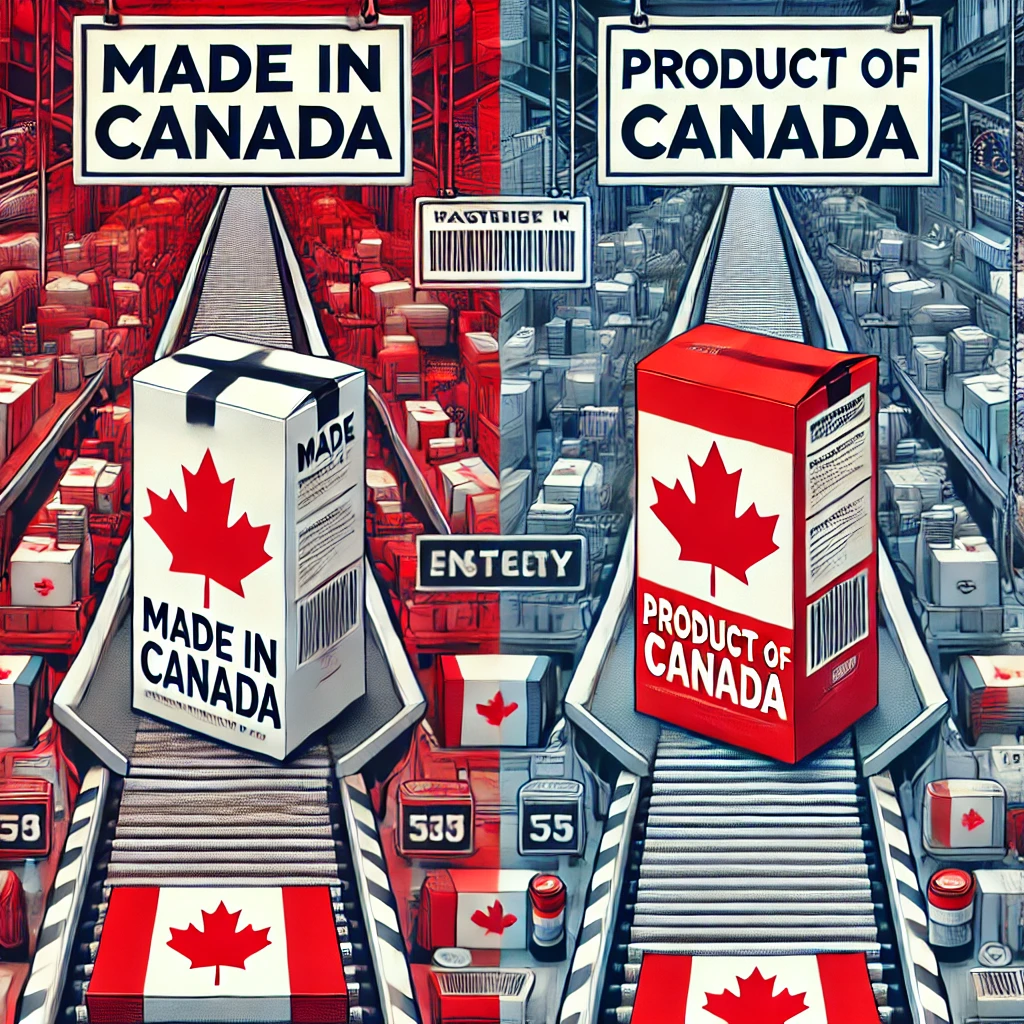Confused by labels, like Made in Canada or Product of Canada? So are we, so we dug a little deeper to try to find answers.
Made In Canada, and Product of Canada, are voluntary labels that must follow strict criteria.
To label a product ‘Made in Canada’, final assembly must be in Canada and, for non-food products, at least 51% of the direct costs of production incurred in Canada.
To label a product as ‘Product of Canada’, at least 98% of the costs of creating the product must be incurred in Canada.
Product of Canada : > 98% Canadian
Made In Canada: > 51% Canadian and final assembly in Canada
Made In Canada claims also require an extra clause such as “Made in Canada with domestic and imported ingredients” or “Made In Canada from Imported Parts”.
The official product label regulations:
Canadian Food Inspection Agency (For food products)
Competition Bureau of Canada (For non-food products)
Product of Canada is the superior label. But 98% is a very high bar, and so we don’t see a lot of Product of Canada, especially for complex manufactured goods. You are more likely to see simple things, such as a carton of eggs, labelled Product of Canada.
We should prefer Made in Canada or Product of Canada products. In many categories however, this is not possible or practical. Electronics for example, or clothing, are overwhelmingly made in Asia. But even in those areas it is still valuable to buy from a company that adds much of the value in Canada, even if the product is manufactured in China.
Focus not only on where a product is made, but also where:
- the company is headquartered
- the product is designed, engineering, or other value is added
For example, Mysa, a tech company that makes smart thermostats, is headquartered in St. John’s, Newfoundland and Labrador. It employs over 100 people in the design, engineering and other corporate functions in Canada. Its thermostats (like most electronics) are not made in Canada. But much of the product’s value is added in Canada. When you buy one of their thermostats, you are supporting a Canadian company and high-quality Canadian jobs.
On Canada’s other coast, headquartered in Vancouver BC, is the Canadian company Lululemon. Their clothes are mostly made in Asia, but much of the corporate jobs are in Vancouver, including their Research and Development lab, where the Canadian Olympic team uniforms for the Rio Olympics were designed.
It is not possible, or even desirable, for everything we consume to be 100% made in Canada. But we can strengthen the Canadian economy by supporting businesses where much of the product value is added in Canada – whether that is manufacturing, design, engineering, or simply being owned and headquartered here.
Want to check out companies that add their product value here in Canada? Check out our business catalogue to find companies like Mysa, Lululemon, or La Vie en Rose.


Leave a Reply